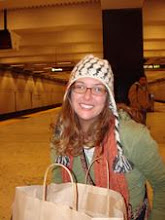It seems ludicrous to me that a block of cheese and a carving which consumed 3 days of a Highland man’s life are of the same monetary value. Fifteen Kina is worth approximately $4.97 USD. At a second hand clothing store I bought 7 articles of clothing from Australia and Asia for less than 15 Kina. I just can’t justify buying a box of Kellogg’s or a jar of pasta sauce for the same price as a weeks worth of clothing. From the market, I can buy enough fruits and veggies to feed me an entire week for K15. A heap of 5 to 6 potatoes costs K1 as does 1 tomato, or 10 bananas, or 3 small eggplants. From the pharmacy however, I bought contact solution for K50 ($16.56), the same price as a mobile phone. Although I struggle to keep a budget, my lifestyle is not stricken by poverty.
As a VSO volunteer I make K1250.00 monthly in addition to my housing costs. To put this into perspective, a typical “house meri” or cleaning lady makes K10 a day, the VSO accountant’s (a PNG National) salary is less than a “volunteer’s” salary and his housing is not provided. Most assistant program managers are not financially able to own or rent their own house and often live with their wontoks, extended families. I use quotations around the term volunteer because I question if we can call ourselves volunteers. Are we really working for free? We are given a good rate of pay, which when our housing is included, is equivalent to that of a highly trained National in a managerial position? Is “volunteer” the right term?
Unlike Zambians and many people from southern countries, Papua New Guineans are not hungry. The land is rich with fruits and vegetables and the sea with fish. And yet during the lunch hour people are spilling out of kai stores (restaurants) with their take away and ice cream cones. Could this explain the high prevalence of Type II diabetes here? Although I see much more disposable income than that of Zambia, PNG is still impoverished. The hospital in the country’s third largest city has depleted its oxygen and blood supplies. Families cannot afford to pay school fees and consequentially the numbers of sex workers have increased. Why do families have to pay for education at all? PNG is very rich in natural resources which are being traded internationally at high rates. Rather than PNG, Asian mining and fishing companies are reaping the profits with no social responsibility. The land, sea, and reefs are being destroyed at the cost of the next generation of Papua New Guineans.
In my fourth week in this country I find this difficult to understand. These questions and concerns are not all my own. These are drawn from many discussions with other “volunteers” at The Lodge on Friday nights over K25 plates of fish-n-chips and K6 SP beers—a house meri’s weekly salary.
Monday, June 16, 2008
Subscribe to:
Post Comments (Atom)







No comments:
Post a Comment